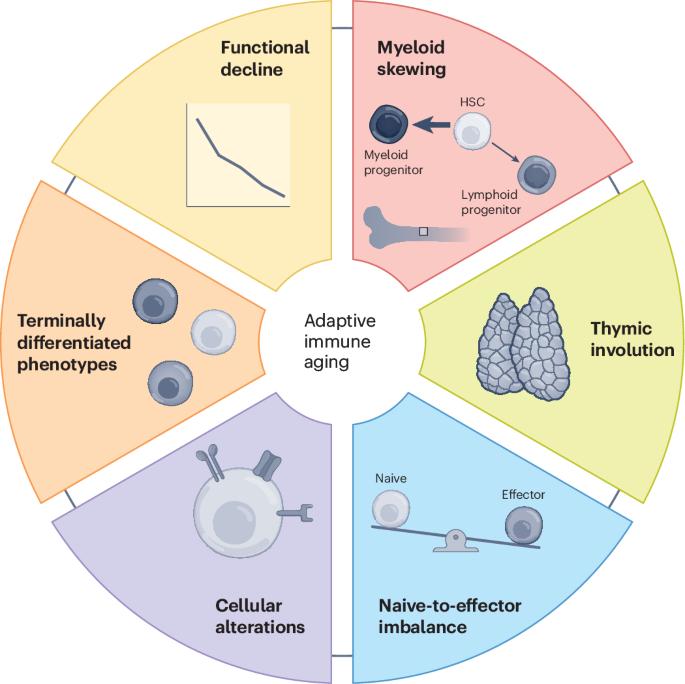Aging reshapes the adaptive immune system from healer to saboteur
IF 19.4
Q1 CELL BIOLOGY
引用次数: 0
Abstract
The classical role of adaptive immunity as a protector against external threats has expanded to include its functions in cancer surveillance, tissue repair and regeneration, and, more recently, it has emerged as a regulator of the aging process. In this Perspective, we discuss the mechanisms by which the deterioration of adaptive immunity contributes to inflammaging, cellular senescence and age-associated pathologies. We propose that age-related changes in lymphocytes contribute to aging through two distinct mechanisms. First, adaptive immune function worsens with age, impairing immunosurveillance of damaged or senescent cells and diminishing tissue regenerative potential, thereby indirectly disrupting tissue homeostasis. This disruption is particularly important in the gut, where maintaining tissue and microbiota homeostasis is crucial for overall health during aging. Second, adaptive immune cells often acquire pro-inflammatory and autoaggressive phenotypes with age, directly driving tissue damage, promoting senescence and exacerbating inflammaging. Finally, we explore the therapeutic potential of strategies aimed at enhancing the protective functions of lymphocytes or modulating their pathogenic phenotypes to promote healthy aging. Delgado-Pulido, Yousefzadeh and Mittelbrunn explore the molecular mechanisms by which adaptive immunity regulates the processes of aging, discussing age-related declines in protective functions and age-related gains of autoaggressive features in turn.

衰老将适应性免疫系统从治疗者重塑为破坏者。
适应性免疫作为抵御外部威胁的保护者的经典作用已经扩展到包括其在癌症监视,组织修复和再生中的功能,最近,它已经成为衰老过程的调节器。从这个角度来看,我们讨论了适应性免疫恶化导致炎症、细胞衰老和年龄相关病理的机制。我们提出年龄相关的淋巴细胞变化通过两种不同的机制促进衰老。首先,适应性免疫功能随着年龄的增长而恶化,损害了对受损或衰老细胞的免疫监视,降低了组织再生潜力,从而间接破坏了组织稳态。这种破坏在肠道中尤为重要,在肠道中,维持组织和微生物群的稳态对衰老过程中的整体健康至关重要。其次,随着年龄的增长,适应性免疫细胞往往获得促炎和自身侵袭的表型,直接驱动组织损伤,促进衰老和加剧炎症。最后,我们探讨了旨在增强淋巴细胞保护功能或调节其致病表型以促进健康衰老的策略的治疗潜力。
本文章由计算机程序翻译,如有差异,请以英文原文为准。
求助全文
约1分钟内获得全文
求助全文

 求助内容:
求助内容: 应助结果提醒方式:
应助结果提醒方式:


